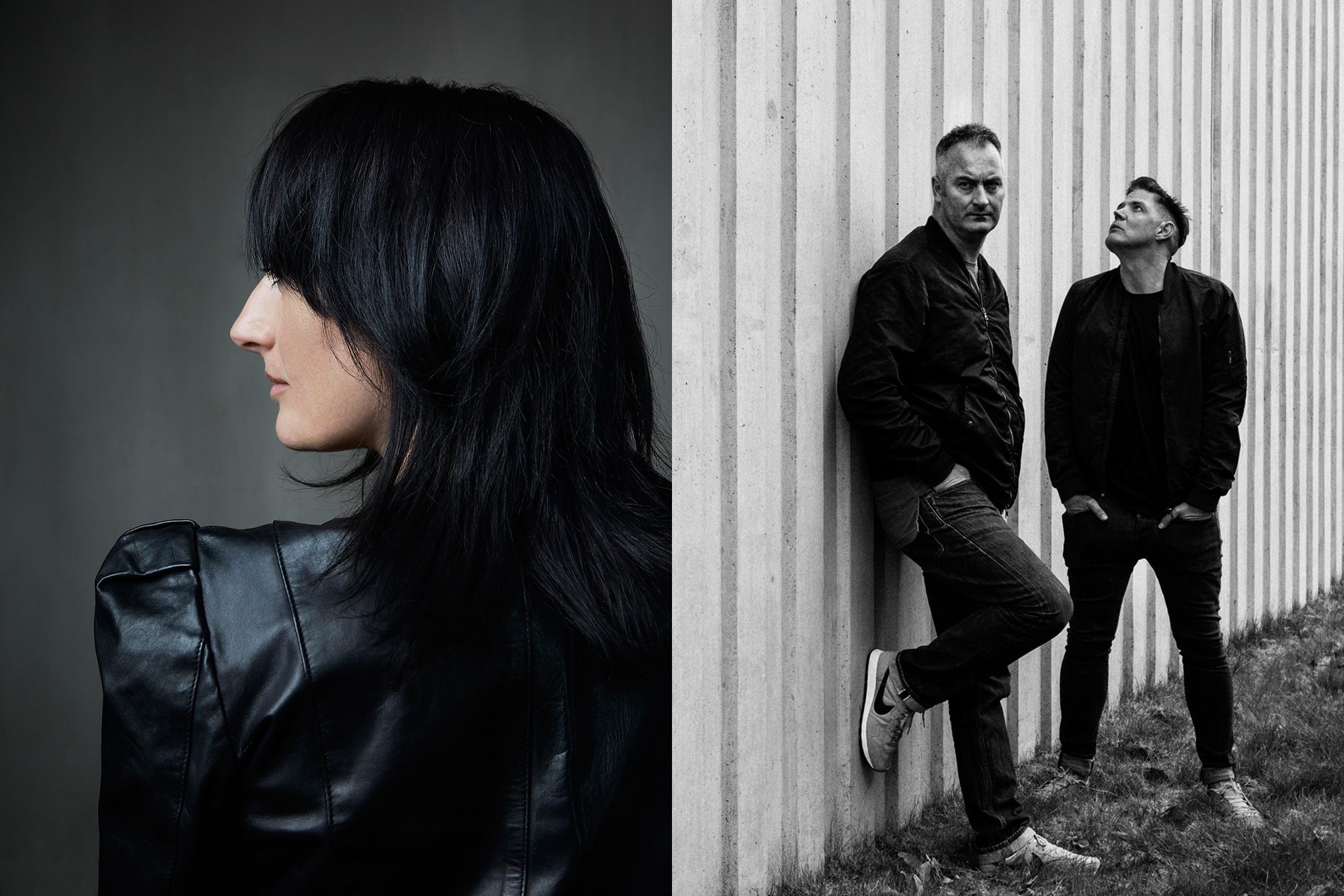 Features
Features
Paula Temple and Slam talk about raves without phones, hybrid sets, Berghain and Riverside Festival
We host a conversation between Paula Temple and Slam ahead of their appearance at Glasgow's Riverside Festival
History tends to repeat itself: nothing ever truly dies, everything is simply transformed, to borrow a phrase. When it comes to the rhythmic circles of music, any fading of techno’s popularity precedes the sound swing back around bigger and beefier than before. Following a fallow period for clubbing, techno is primed for a furious resurgence, with the new roaring 20s set to kick off with a much more raucous soundtrack than our century-ago predecessors.
Read this next: Roaring 20s: Why club culture could surge this decade
Techno polymath Paula Temple has more than 20 years experience in the scene. Reflecting on the evolution of the genre, she tells us, “it’s really these local and more underground artists that are giving all their substance to the scene”. Among the cacophony of sub-genres that have strayed from the original sound - ‘noisician’ and modular genius Paula Temple flies the flag for harsh, bold sounds.
Running in the same circles at near enough the same time, Glaswegian duo Slam, comprising Stuart McMillan and Orde Meikle, have also been leaving their mark on the sound since techno’s early entry into Europe. Revered as DJs, producers and label owners, with their label Soma Records supporting a plethora of upcoming talent three decades into its lifespan. Their parties are also unparalleled, from their Pressure club nights to the infamous Slam Tent at festivals to the full Riverside Festival they co-founded with Electric Frog, which is a three-day ode to Glasgow and its mammoth music scene.
We caught up with Paula Temple and Slam to talk all things techno.
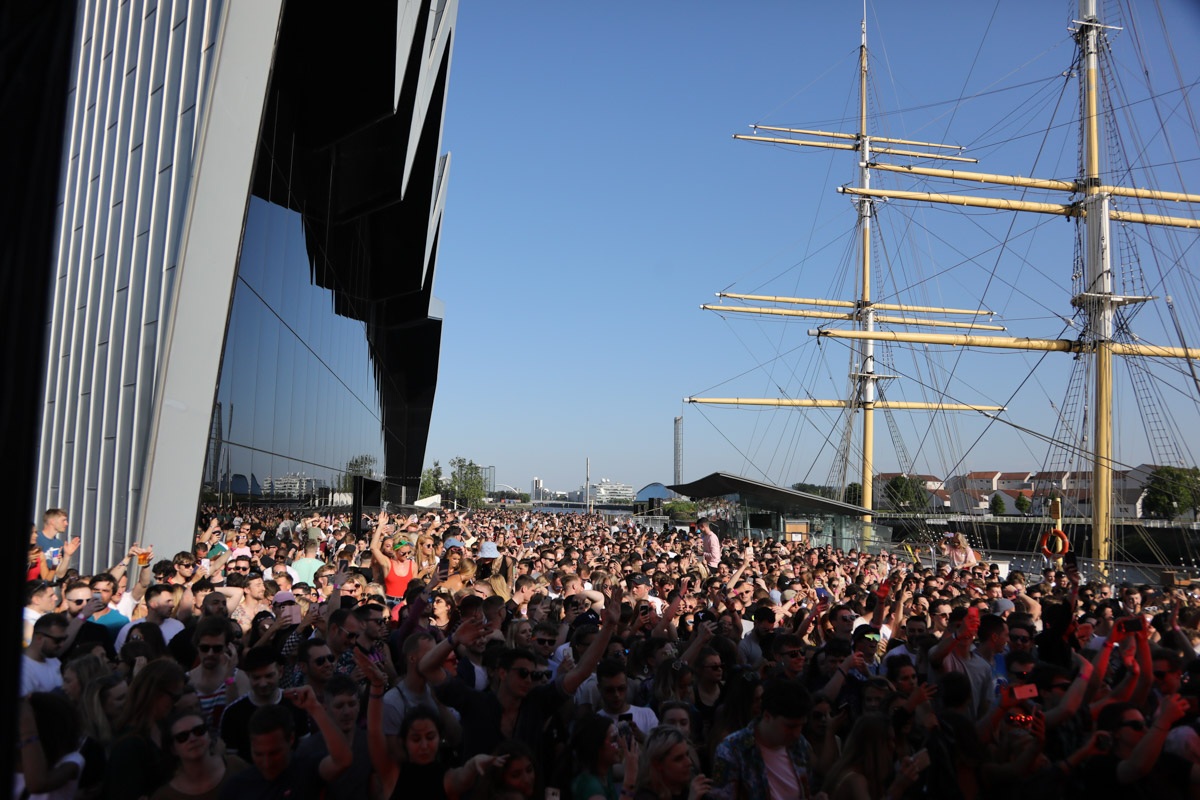
What have you guys been doing through the pandemic? Have you been more productive?
Paula Temple: I've been less productive to the point of not producing at all. It’s been great for spending time with my wife - we've fostered a dog, we're now emergency foster dog people. So I've had a great time focusing on my relationship and dog walks. It's been wonderful, almost like a mini-retirement just out of the blue. Bam, you're retired! Deal with it. I've tried nearly every day for six months to be in the studio and produce but with all this uncertainty, I'm really sensitive. You know in May when I did that remix for you?
Stuart: Yeah, that was amazing by the way!
Paula: It's not! I'm really embarrassed about it. I feel ashamed, it's all wrong. I don't respond very well to deadlines, but this was for good cause. I didn't deliver good enough, I'm sorry!
Stuart McMillan: You shouldn’t be, it's absolutely amazing. I can't wait to bash that in the club. Because of the sheer volume of music these days, you tend to not stick with tunes for that long, or they just get superseded by other ones, just to keep your creative energy as a DJ. To have all this fresh material is something that can always be re-invigorating.
Paula: ‘Positive Education' came out around ’93, did it not? I was 16 at the time!
Stuart: I think we were 16 at the time too. (Laughs)
Paula: Really?! That was a standout track of its time. For others, it's a statement of techno, and being 16 and hearing that… never in a million years would I have ever thought that I'd be invited by you guys to remix it.
Stuart: Thank you. That's really sweet! It's been remixed quite a lot of times. People sort of drift away back to the original track, I guess. For us at the time, when we first made that track, we struggled to make other music after because we'd set the bar quite high. We don't often feel that confident in our music, but that track, we knew it was quite special.
You guys came on to the scene at around the same time, right? And you've remixed each other's work before, do you find that you're quite influenced by each other?
Paula: For sure. Their whole catalogue of Soma Quality Recordings has always educated me, really. The label covers such a wide spectrum of techno as well, so you've got the melodic, Detroit influence; very strong in its early days. Now it's covering the current artists, the up-and-coming. The ones who drive the current scene in modern techno, it’s great to hear. There was even like a punk industrial EP just recently.
Stuart: The Namesis one? Yeah, it's like, EBM…
Read this next: The 10 best pre-90s EBM & new beat tracks
Paula: You’ve always been on the pulse as a label. You're where I look for inspiration.
Stuart: That's kind! The label is almost a feeder from what we do as DJs. The ethos with what we release on Soma is basically the music we’d enjoy playing, it's always simply been about that.
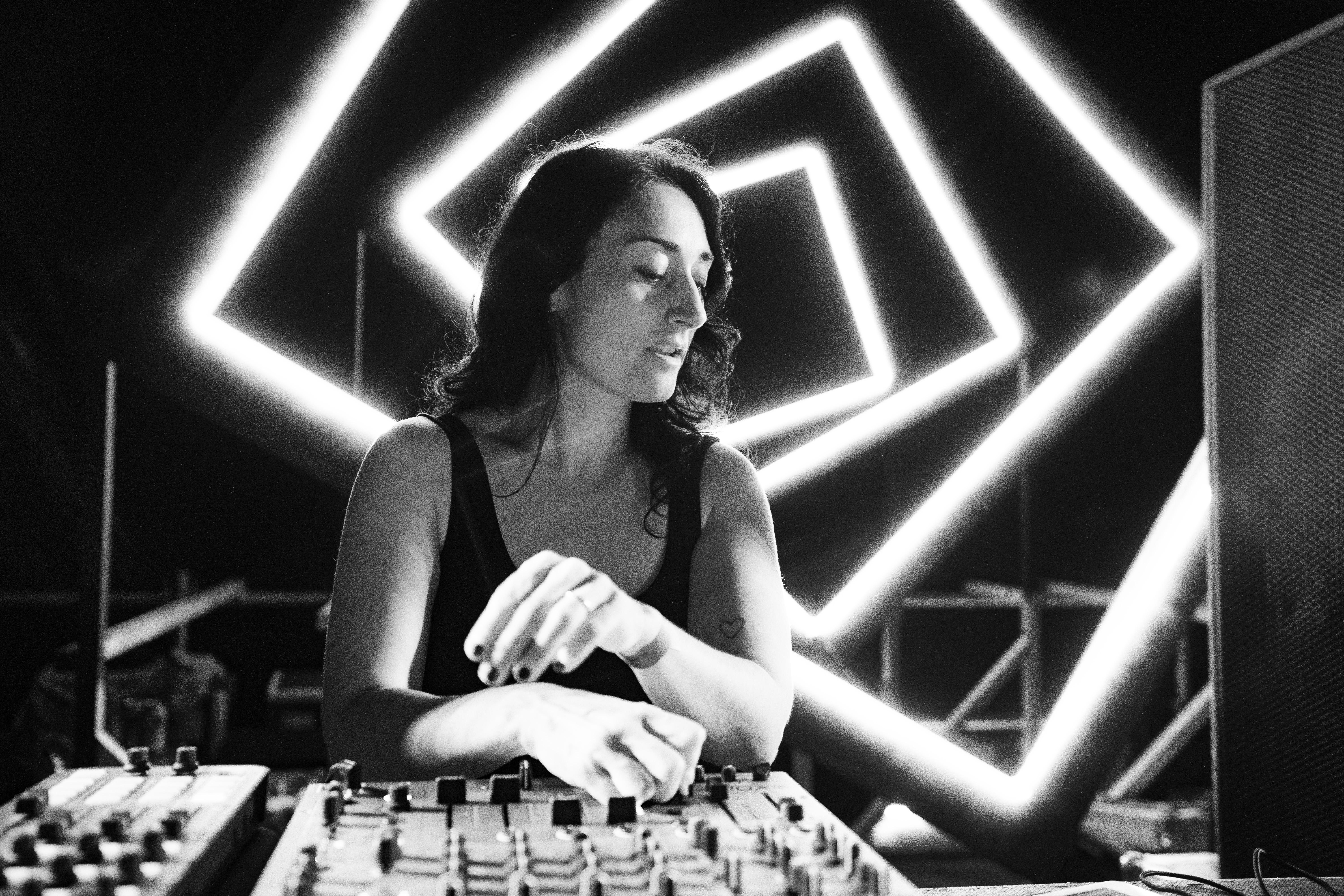
Paula, being based in The Netherlands, do you think that the sound over there differs from the UK? How do the techno scenes compare?
Paula: Well, I grew up near Manchester. I was clubbing in the early days of Bugged Out, before they built the second floor.
Stuart: Sankeys!
Paula: Yeah, Sankeys! So back then it was names like Robert Hood, Dave Clarke, and you guys. All the same people that you would have had in Scotland. There was Voodoo in Liverpool and The Orbit in Leeds, and that was my triangle of techno heaven. I'd go every weekend. Back then, the energy was totally free and exciting. The fact that you didn't have phones filming you really did make a difference, it was just about letting loose. But in the Netherlands, it surprised me just how casual it was, the energy, rather than just tearing yourself apart which is also what I love. Festivals like Awakenings, DGTL, By The Creek, Zonder…
Stuart: Rotterdam Rave...
Paula: Yeah, Rotterdam Rave is probably the rawest and wildest of the big events. It's quite interesting to see a whole sea of people fist pumping. They love the hardcore element here and I'm influenced by that.
Stuart: You can definitely hear that!
Paula: I quite like that because it's the really strong, fun element. We do have that in England too, like the time of Aphex Twin and Rephlex bringing that kind of mental acid sound out.
Stuart: We were lucky to play one time at Orbit, and we did Voodoo a few times. Orbit was full-on. 145 BPM plus, back-end rave. At that time, it was probably one of the most mental clubs.
Paula: It was my favourite club, that would be the one I went to the most. It was 8:PM till 2:AM, you arrive at 8 and it's full. There were some people we would call basketball players because they would run from one side of the room to the other, some unique dancing going on!
Orde Meikle: I saw somewhere that fabric is introducing a policy banning pictures. The guy said, ‘you don't need to film it, just, you know, be there’.
Read this next: Noise Manifesto: Paula Temple's techno refuses to lie down
On that topic, with the way that the scene is moving - there's this real love and attraction to places like Berlin. How do you see the techno scene shifting?
Stuart: Apparently Berlin isn't the epicentre anymore, it's Paris! Or Ukraine. I think that it's starting to move to a more inclusive side of techno which you see in clubs like Griessmuehle. There's also this stadium type 'Instagram techno' which divides everyone a little bit. But then there's also an underground bunker style, original kind of ethos starting to creep its way back in.
Orde: I think a lot of underground, smaller promoters are looking around at the local scene to support up-and-coming producers. And also to avoid these ridiculous prices for basically just another DJ. Kind of move away from the Dutch model of these all-and-everybody-on-one-bill kind of events.
Paula: Yeah. I think because we've both lived through that first period of techno, and then there's almost like a death of the genre, and then now a resurrection. It's revived bigger and better than ever, but there has been a price to pay, which is the social media side of it. What I love and hold on to from the original techno times is that it didn't matter. There was no pressure on how you looked or who you were seen with. But now as an artist or DJ, there's so much pressure to focus on Instagram.
Stuart: It’s a form of marketing.
Paula: I don't want that. I feel really uncomfortable, and because of that, I feel like I'm going to be left behind. There's always this constant pressure to play to the algorithms.
Read this next: Social media is dangerously affecting DJs' mental health
Orde: When you're talking about the first wave of techno, you made your name because of your performances and the music that you played. Now, I get the feeling that music and performances has slipped in the order of importance.
Paula: Yeah! I mean how dare I complain, but I posted on Instagram before about music - nope, no one gives a shit. But then I take a selfie and it's all likes. Suddenly my music didn't matter anymore. I thought that was a sad moment, but on a positive, techno is more popular than ever. Everyone that I speak to now knows what techno is, when years back I'd be quite embarrassed or shy to say. Everyone had a really fucked up idea of what techno was. Now, everyone's like 'OI TECHNO!' like it's the best thing in the world. So I guess my ego likes that a little bit!
Stuart: I also remember someone saying that techno was a type of music that didn't ask you to like it, you know?
Paula: Yes, exactly! That's the bit that attracted me. Not only the fucking great music and sounds that were so exciting. But also, at these events, it just didn't matter.
Stuart: I almost like how it became a dirty word…
Paula: I kinda like that, too. The people you'd meet at the techno parties would be so like-minded. I guess everyone's doing drugs in connection with the music. I didn't do drugs, so it was pure sound to me in a completely sober way.
Orde: Visuals were always important with our clubs in the early days, but we didn't need pyrotechnics or everything that a 'good night' can cost. It becomes about the ancillary, the things around you. As I said, the music seems to be getting pushed down in the order of importance, which is never a good thing and won't last. It's always going to be about the music.
Stuart: I think what you said about inclusivity within the local talent, with something like Riverside Festival, for example, we try to create an inclusive, inner-city line-up. Being an urban festival in the centre of Glasgow, it kind of belongs to Glasgow. It's something that we're conscious of, trying to mix it up with not only the best international talent but alongside that, local artists too.
Orde: There’s quite a diverse choice of music genres covered by local DJs.
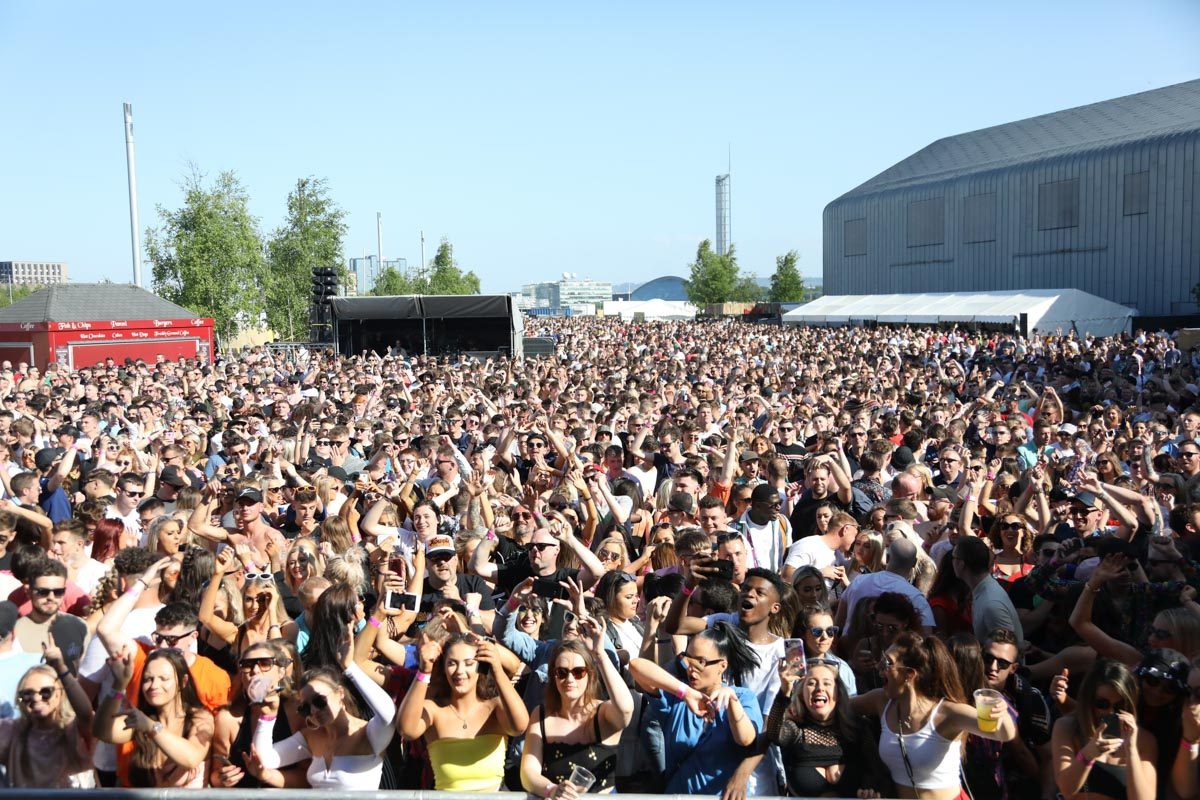
How did Riverside Festival come about?
Stuart: We hooked up with the Electric Frog guys for a series of one-off events. It was a collaboration between them and Pressure, which is the nights we run in Glasgow. Together we approached the Riverside Museum, not thinking that they would say 'yeah, you could do a festival here'. For Glasgow, it's a really iconic building, and they agreed. It started quite small, but we landed on our feet and it runs smoothly now.
Orde: It started off more as a street festival in the very early days, didn't it? Then it kind of disappeared, and we moved to the museum site. As Stuart said, it's so iconic. Right by the river, and if you get the good weather, which we always do in Glasgow, it's great.
Stuart: How many times have you played, Paula?
Paula: Oh, is it two times? Yeah, twice.
Stuart: Good experiences?
Paula: Oh yeah, every time. What gets to my heart is just the whole team, and how much it feels like a family. Everyone is very proud to be part of it. I remember the first one I played, I was due to play fabric that night so I played during the day, and then my flights got cancelled. You guys got a friend to drive me all the way down to London. I made it just in time for my fabric set!
Stuart: We just want people to get as much of a buzz from it as we do. That's always been the main ethos behind it. I suppose it's a business as well, but because we're in amongst it, we never really take it for granted. You can tell by the people that we book that we're not doing this just purely for business. That makes a huge difference to the overall festival.
Read this next: "Evil bastards!": Why a tabloid storm won't crush Glasgow's famous 'afters' scene
And you've just announced the return of your Pressure nights - what are you looking forward to the most when they start up again?
Orde: Any of them!
Stuart: Yes of course, can't wait! Really looking forward to the Riverside Festival too because we're doing our hybrid live set there. The festival takes quite a high priority, and because we’ve been moving acts and moving the event so much over the past year. When it comes to the festival, it'll be a real reward. It's been quite stressful to deal with all of this, a logistical nightmare moving it or having to change some of the DJs because not everybody could make it. I think we've ended up with a nice bill, so I'm really, really happy. I'd be excited to play in front of 30 people right now!
Orde: We’re really happy with the people who bought tickets. They've held on to their tickets, we've got virtually no refunds whatsoever. Everyone kind of stuck with us while we arranged it all. That's been a real positive point, that people stuck with the concept and just believed that it was eventually going to happen.
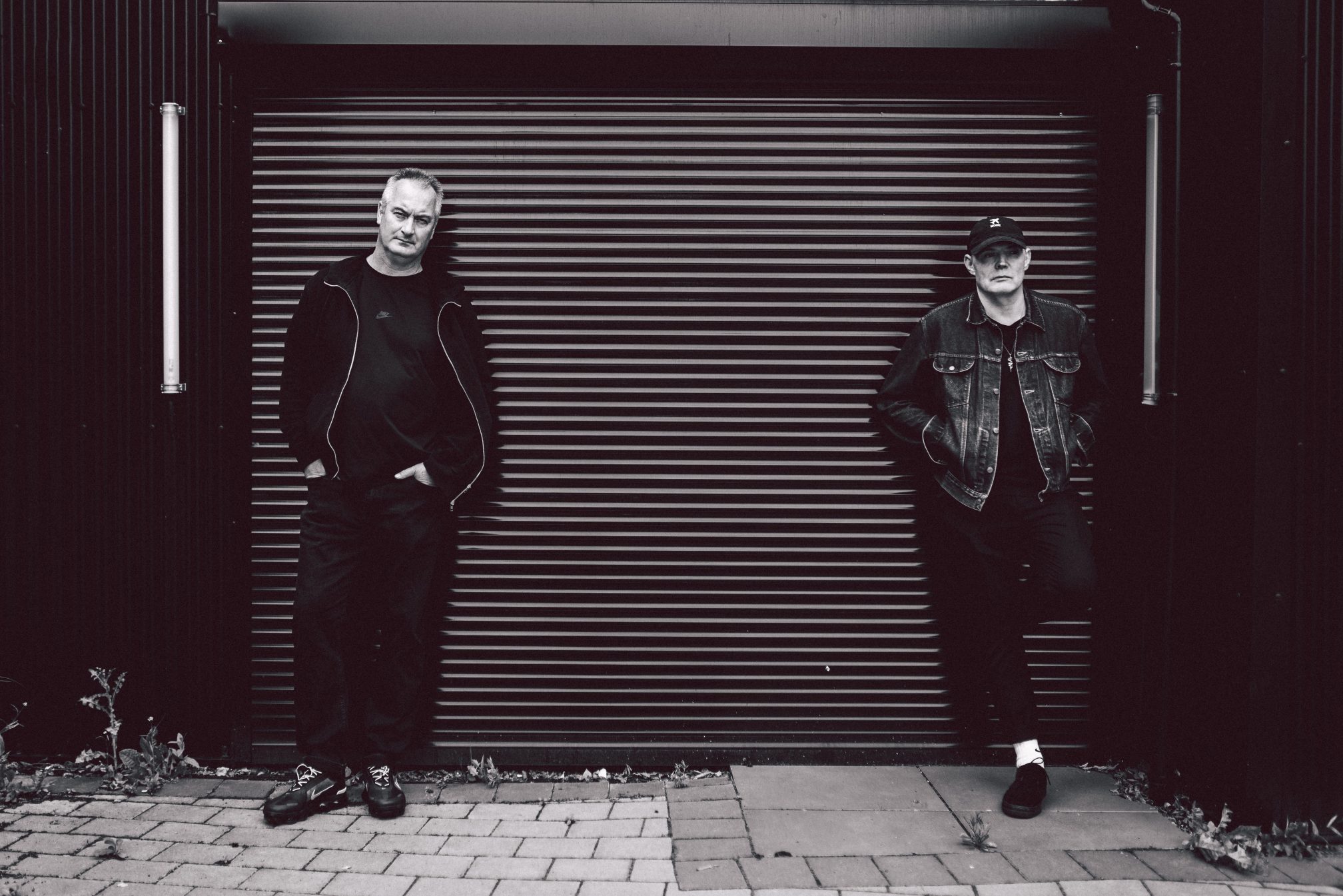
You've all done a lot of hybrid-live DJ shows in the past, are you working on those the moment?
Stuart: We had a lot of hybrid lives booked in for 2020. We managed one show in Geneva and that was all we did of them. I think in the first six to eight months of lockdown, we were like 'what the fuck are we gonna do?', so Orde and I just bounced some tracks back and forward, making lots of music. A lot of those ideas that came from the EPs will work their way into the hybrid lives, so we're excited because we've got quite a lot of material. Riverside will be the second to see it! The idea was that it would be a lot of our own music, and then some samples from other people’s music to make up other tracks. We just did a mish-mash of flavours, trying to get a feel. A traditional live set would be like an hour, but what we want to do is maybe extend that up to two hours, and then just have some fun with it and make it a bit more free. Sometimes live sets are very rigid, you know. It's good to just have that freedom, It's like a proper back-to-back. We’ll bring along the modular and a few other toys to play with, it's a point where you can experiment and if it's not too coordinated or it doesn't sound exactly the way you want it to sound, there's a lot of room for something freeform.
Orde: I think freeform is the perfect word for it!
Read this next: 10 of the best live modular sets you can watch online
Paula: Do you get strength from each other because you're a duo? Does that make a difference?
Stuart: Yeah, all the time. It's really uncanny, our DJing, because we never used to play together. Orde would do a little bit, and then we would kind of swap back between. I don't know what he's gonna do and he doesn't know what I'm gonna do, but somehow, we're connected. I don't think there are any obvious reasons for why that is, it's just really weird.
Paula: I’m jealous! I need somebody I can trust and take the pressure off of myself!
Stuart: Well, let’s do a back to back-to-back! It takes the pressure off of travelling too, it makes it so much more bearable. The hours or days in the hotel room on your own between gigs. We've never had to suffer that.
Paula: I love it when there's a gig during the day - my ideal situation is to gig in the day in a dark club. I need a dark club to play but I need my sleep at night!
Stuart: You’re talking about the Berghain!
Paula: I love playing the Berghain, I can wake up at 6:AM ready to play feeling fully refreshed.
Stuart: It’s the weirdest thing ever playing in there during the day because you have your breakfast or lunch or whatever, you relax, you walk in, and you play for three hours. You hang for a couple of drinks or whatever, I usually stay for like six to eight hours. Sometimes it's still light when you leave! All of my senses are all over the place. It becomes its own time...
Orde: Berghain time?
Stuart: Yeah! It's so strange.
Paula: I miss Berlin, I lived there for about five years. It has such a strong, techno community. And the queer community as well.
Stuart: This is the cool thing about the techno scene and travelling, you just have these connections with people you don't even know. The more you spend time in different countries with different people, the more you come to the conclusion that we are all fundamentally similar.
Paula: Totally. I think these parties have a crucial role in bringing different people together and bringing a state of calmness. It's a way of connecting peacefully, you're getting your energy out, you've got a way to influence each other in a positive way. My fear of what's been happening in the lockdown is that we've been cut off. Facebook is profiting massively. They don't care, they want all that hate shit going on because we get angry and angry is profit.
Stuart: When we started doing parties in Glasgow, it could be quite a violent place. You knew where to go and where not to go. But in the parties, everybody came together. It was a gathering of like-minded souls. When that isn't around, the world isn't as nice a place.
Orde: I thought that was one of the great things about the early days of the scene, you just used to see all types of people coming to the parties and embracing the whole culture. think the early parties broke down a lot of barriers. I still think dance music has a part to play in that culture.
Paula Temple and Slam play Glasgow's Riverside Festival across September 3 to 5, find out more here
Gemma Ross is Mixmag's Digital Intern, follow her on Twitter


